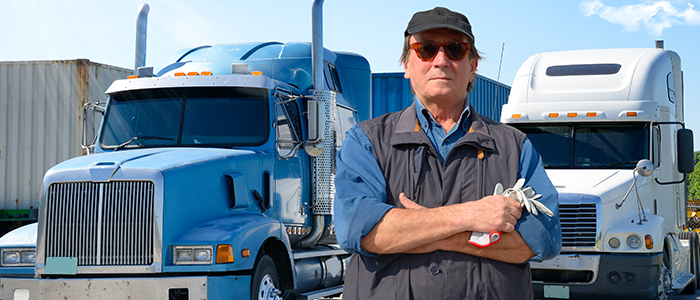Concerns over cannabis use at work
 Otago Daily Times 15 August 2020
Otago Daily Times 15 August 2020
Family First Comment: Mr Hardy expects more positive tests to follow cannabis legalisation. “We’ve seen … the data coming out of the US, where they had a 75% increase of positive rates for marijuana. From 5.1% and it went to 8.9% for positive marijuana use, which is a huge [increase].” The big question of impairment was not easy for the drug testers either, Mr Hardy said. “No toxicology can detect impairment. With cannabis it’s a really, really tricky substance. If you look at it, you’ve got what’s called intoxication and then you’ve got what’s called impairment.
When recreational cannabis was legalised in states in the United States, it led to a jump in positive drug tests at the workplace of about 75%. Jacob McSweeny takes a look at how workplaces like forestry and the port will manage if cannabis legalisation gets a ‘‘yes’’ at the coming referendum.
There are major concerns among industries with drug testing regimes that more workers will fail tests if cannabis is legalised later this year.
New Zealanders will decide whether to legalise recreational marijuana at next month’s election.
The testers
If there is a “yes” vote and if the legislation then becomes law, how workplaces measure impairment will be the big question for a lot of employers.
The Drug Detection Agency (TDDA) is one of the go-to drug testers for many companies that have to test for health and safety reasons.
TDDA chief executive Kirk Hardy says on average their testing in New Zealand has a positive rate for cannabis of about 5.8%.
For pre-employment tests the average is lower, at about 4%.
Cannabis is king in Otago, as the most common drug found in people’s systems, followed by methamphetamine and opiates.
Mr Hardy expects more positive tests to follow cannabis legalisation.
“We’ve seen … the data coming out of the US, where they had a 75% increase of positive rates for marijuana.
“From 5.1% and it went to 8.9% for positive marijuana use, which is a huge [increase].”
The big question of impairment was not easy for the drug testers either, Mr Hardy said.
“No toxicology can detect impairment.
“With cannabis it’s a really, really tricky substance. If you look at it, you’ve got what’s called intoxication and then you’ve got what’s called impairment.
“Intoxication is when you’re high. The best way to describe it is the analogy of alcohol. You drink alcohol, you’re feeling pretty happy — you’re intoxicated by it. The next day you get what’s called a hangover … you’re impaired.
“You’re impaired during intoxication and you’re impaired after that in the hangover effect.
“Exactly the same thing applies to cannabis.”
He warns some studies have shown impairment can last for weeks after smoking cannabis.
But if someone is only dabbling in a little cannabis on the weekend, it will probably not show up in a test on the following Monday.
“If someone’s having … a couple of tokes of a joint on a Friday or a Saturday night, they are more than likely going to test negative in the workplace on Monday through urine analysis.
“They will definitely test negative with oral fluid, or saliva testing,” he said.
The Drug Foundation
The Drug Foundation executive director Ross Bell described testing for impairment as a “weakness”.
“There isn’t good technology available to workplaces at the moment around measuring impairment.”
Somebody might smoke cannabis on the weekend and pass a Monday test, but, they might also fail that Monday test a few weeks later, Mr Bell said.
“The only testing regime are urine tests, which test for presence. Someone could have smoked five weeks ago and still fail a test.”
He said the current testing regime was inadequate but there was potential with saliva testing.
“Because that tests for more recent use, within the last few hours, that could be a system.”
He had his reservations about that, as well.
“I can’t see a workplace, that even if there was saliva technology, that every morning … you’re going to get all of your 100, 200 or 300 staff to do a saliva test.”
His advice is to work on a culture of understanding around drug use and how it may affect performance.
“Don’t just rely on building a testing regime. Rely on building a culture, a culture that says don’t come to work if you’re impaired, whether you’re hungover or tired or stressed … if you’re not in the right state of mind, don’t come to work.”
He said employers needed to communicate why they needed systems like drug testing.
“We’ve done work with the Defence Force where they had this zero-tolerance approach and staff didn’t really understand what that meant.
“They had never communicated the rationale for taking a strong approach. Workplaces need to educate their staff: ‘we care about you, we want you to stay staff, we want you to look after your workmates, you’re in a risky environment — this is why we can’t have you showing up with your performance impaired’.”
Overall, drug testing sent a bad message to workers and a culture of safety was always a better way to manage drug use, he said.
“There’s a real weakness with drug testing, not just in the technology but in the message it sends to workers: ‘we don’t trust you, we need you to pee in this cup and we’re going to catch you out’.
“That doesn’t make for a good working relationship between employer and employees.”
He said the cannabis referendum was a good chance to engage with staff on the issue, to try to build that safety culture.
READ MORE: https://www.odt.co.nz/business/concerns-over-cannabis-use-work







